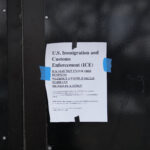World Trade Organization mediators in Geneva put the final touches to new negotiating texts on Thursday that will serve as the blueprint for an outline deal in the WTO’s long-running Doha round, trade officials said.
The chairmen of talks in agriculture and industrial goods were due to release the revised documents later on Thursday.
They will form the basis for discussions when ministers meet in Geneva in the week of July 21 to clinch the outlines of a Doha deal, launched in the Qatari capital in November 2001 to free up world trade.
WTO Director-General Pascal Lamy called the make-or-break meeting which is the last opportunity to reach a deal before change in the U.S. administration in January 2009 which could see the talks put on ice for years.
Trade experts say a deal is needed to counter rising protectionist pressures that threaten prosperity, and would be a shot in the arm for the ailing world economy.
“At a time of growing financial uncertainty, the trading system established by the WTO provides an important source of economic stability for governments, business and consumers,” George Mitchell, former Democratic leader of the U.S. Senate, wrote in the Times of London on this week.
The aim is to rewrite the rules of world trade, last codified in 1994, for the 21st century and remove distortions that developing countries say put them at a disadvantage.
Agreement on agriculture and industrial goods — the most sensitive chapters — could open the way for deals in other areas such as services like banking and telecoms as well as trade rules on subsidies and unfairly priced imports.
REDUCING PROTECTION
A deal would see rich countries like the United States, Japan and the European Union’s members open up their food markets by reducing protection for their farmers.
In return they will get greater access to developing country markets for industrial goods and services, especially in emerging nations like India, Brazil, China and South Africa.
Any outline deal by ministers will be followed by months of detailed work translating it to individual goods and services, before ministers can sign off on a final agreement.
Over the past 10 months negotiators have edged closer on a range of technical issues, mainly in agriculture, but differences between rich and poor countries remain wide, particularly in industrial goods, and the services talks have not moved for nearly three years.
Farmers in India rallied against the WTO on Wednesday, and French President Nicolas Sarkozy has criticised the top EU trade official, Peter Mandelson, for conceding too much in the talks.
But Sarkozy made it clear at the Group of Eight summit in Japan that he wanted a breakthrough in the Doha talks, British Prime Minister Gordon Brown said on Wednesday.
TARIFF AND SUBSIDY CUTS
Among outstanding issues are the size of tariff and subsidy cuts — a political decision that only ministers can take.
There are still differences on the complex technical question of how countries shield sensitive farm products from tariff cuts, a concern to food exporters rich and poor.
On industrial goods, the United States and European Union want to ensure that waivers to developing country tariff cuts do not allow them to shield entire sectors such as automobiles or garments from market opening.
Topics USA Europe Agribusiness
Was this article valuable?
Here are more articles you may enjoy.


 Berkely Says It’s No Longer Pressured to Push for Rate ‘Across the Board’
Berkely Says It’s No Longer Pressured to Push for Rate ‘Across the Board’  LA Fire Survivors Got a Rude Surprise That Could Hit More Americans
LA Fire Survivors Got a Rude Surprise That Could Hit More Americans  Businesses Pressured to Respond to ICE While Becoming a Target
Businesses Pressured to Respond to ICE While Becoming a Target  GEICO Settles Call-Center Worker Suits for $940,000; Attorneys Get Half
GEICO Settles Call-Center Worker Suits for $940,000; Attorneys Get Half 

